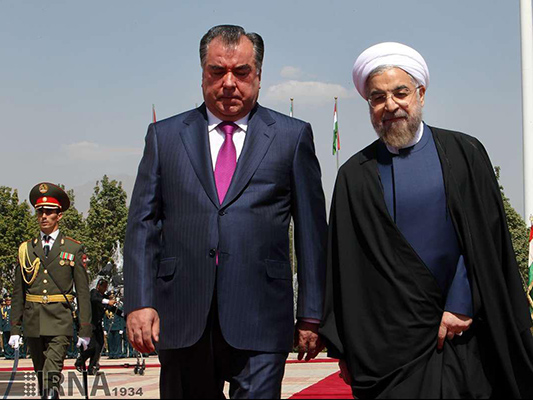It is said that the Iranian embassy has closed its two offices in the historical city of Khujand at the request of Tajik government.
Local sources say about two weeks ago Tajik authorities have ordered the directors of the Iranian organizations in the second-largest city of Tajikistan to stop their activities because Tajikistan “does not need their services anymore.”
“After the Cultural and Trade offices of the Embassy of Iran received the official notification, Iran’s embassy in Dushanbe decided to shut them down,” local media quoted a source at the Iranian embassy as saying.
“The employees of the shut-down offices say the embassy has placed them on leave since mid-June,” the source added.
However, the local media say the embassy officials refused to comment on the issue.
Over the past two years, most of the organizations related to Iran have been forced to shut down in Tajikistan – including the Imam Khomeini Relief Foundation and its offices across the country, office of the Iranian embassy’s Cultural Attaché, and a hospital jointly run by the Tajik government and the Red Crescent Society of the Islamic Republic of Iran.
In the meantime, other media outlets say Tajiran joint tractor manufacturing company and Palood dairy factory are ending their activity in the central Asian country after 10 to 15 years of work experience in Tajikistan. The days are also numbered for the other Iranian organizations that are active in this country which shares the same language, culture, religion, and history with Iran.
Reports say the Tajik government has also restricted the activities of some Iranian companies and businesses in the country.
Witnesses say no Iranian-produced goods could be found in the Tajik markets and all the outlets selling Iranian products have been closed.
Observers believe the closure of these organizations is linked to the cold relations between Tehran and Dushanbe.
Moreover, according to Russian media, Tajikistan has blocked Iran from joining the Shanghai Cooperation Organization as a full member. Iran is now holding an observer status at the SCO.
This comes as in the past years the Islamic Republic of Iran has always been introduced as one of the key trade partners of Tajikistan next to Russia and China.
The strategic tunnel of “Istiqlol” [Independence] north of Dushanbe and “Sangtuda-2” power plant in the south are two major projects built by Iran.
The closure of the Iranian organizations is the latest indication of rising diplomatic tension between Dushanbe and Tehran. Relations between the two countries took a nosedive in late December 2015 on the issue of the Islamic Movement of Tajikistan. While the Islamic Renaissance Party of Tajikistan (IRPT) was considered by the Tajik government as a banned party, its leader Muhiddin Kabiri, who lives in exile, was invited to an international conference in Tehran, and this outraged the Central Asian state.
Tajik authorities said despite the fact that Mohiaddin Kabiri was accused of organizing riots in September 2015, Iran invited him to the International Conference of Islamic Unity while he was seated next to the head of Tajikistan’s state-backed Council of Islamic Ulema and other members of the official delegation from Tajikistan.
Meanwhile, informed sources say the tension between the two countries goes back to earlier times and is in connection with the assets of Babak Zanjani, the Iranian billionaire who is in jail and was earlier sentenced to death.
Experts believe that the ties between Iran and Tajikistan could be boosted again if a party takes a step to sit at the negotiating table to resolve differences, but within the past two years there has been no serious bilateral diplomatic engagements to yield result.
Follow Reza Khaasteh in Twitter via @Khaaasteh
